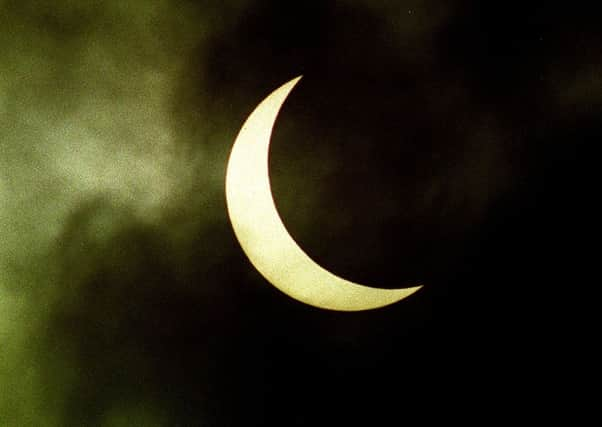13 fascinating facts about the solar eclipse


1. Up to 87 per cent of the sun will be covered in the Portsmouth area as the moon passes in front of it on Friday morning.
2. The incredible spectacle begins at around 8.22am, reaches its maximum extent at 9.29am, and ends at 10.39am.
Advertisement
Hide AdAdvertisement
Hide Ad3. In Vietnam, people seeing an eclipse believed that a giant frog was devouring the Sun, while in ancient China a hungry celestial dragon was thought to be responsible.
4. According to ancient Hindu mythology, the demon Rahu is beheaded by the supreme deity Vishnu for drinking the nectar of the gods. His head flies across the sky and swallows the Sun.
5. It was common practice for people to bang pots and pans and make loud noises during a eclipse to scare the demon away.
6. Korean folklore tells of the Sun being stolen by mythical dogs, while in Europe, the Vikings blamed wolves for consuming the Sun.
Advertisement
Hide AdAdvertisement
Hide Ad7. The ancient Greeks believed a solar eclipse was a sign that the gods were angry, and that it heralded disasters and destruction.
8. Among modern superstitions is the belief that solar eclipses can be a danger to pregnant women and unborn children. In some cultures, young children and expectant mothers are asked to stay indoors during an eclipse.
9. In parts of India, people still fast during a solar eclipse because of the fear that any food cooked during the event will be poisoned.
10. A few superstitions offer a positive slant on eclipses. In Italy some believe that flowers planted during a solar eclipse will be brighter and more colourful than at any other time.
Advertisement
Hide AdAdvertisement
Hide Ad11. The Batammaliba people from Benin and Togo in West Africa have a legend that during an eclipse the Sun and Moon are fighting. The only way to stop the conflict, they believe, is for people on Earth to settle their differences.
12. The last solar eclipse of such significance occurred on August 11 1999, and was “total” - with 100% of the Sun covered - when seen from Cornwall
13. The next total eclipse is not until September 2090
Do not to look directly at the sun and do not photograph the eclipse directly with a camera (unless it’s specifically designed for the purpose).